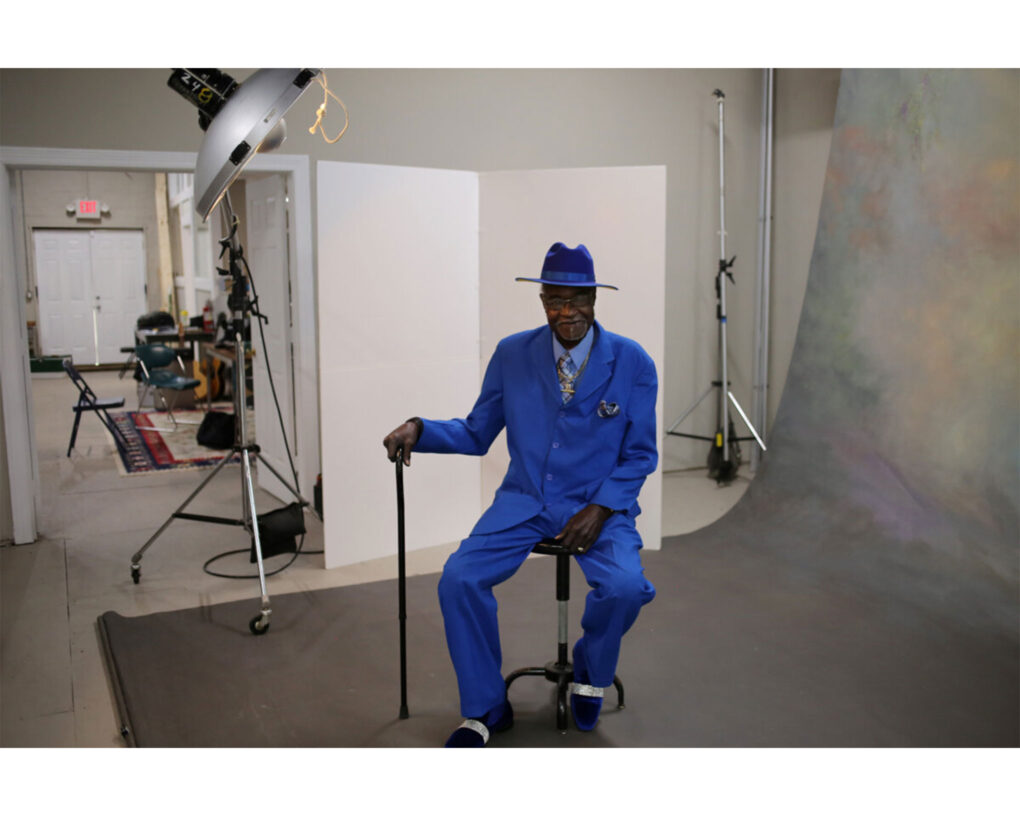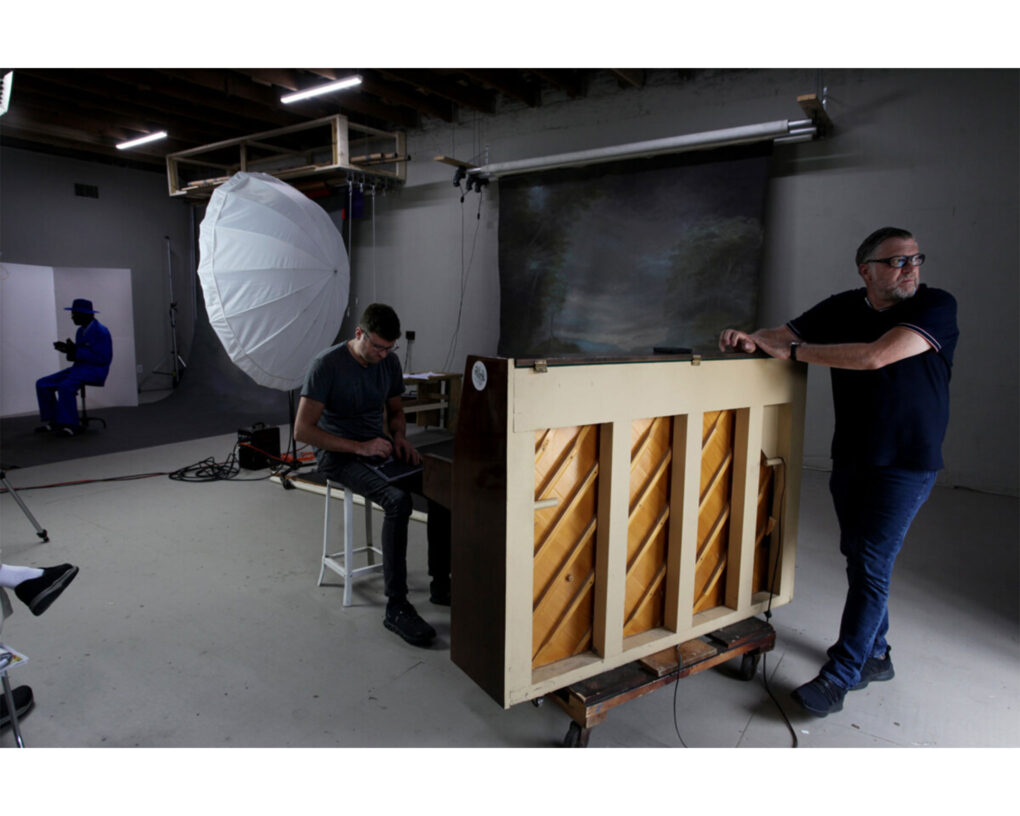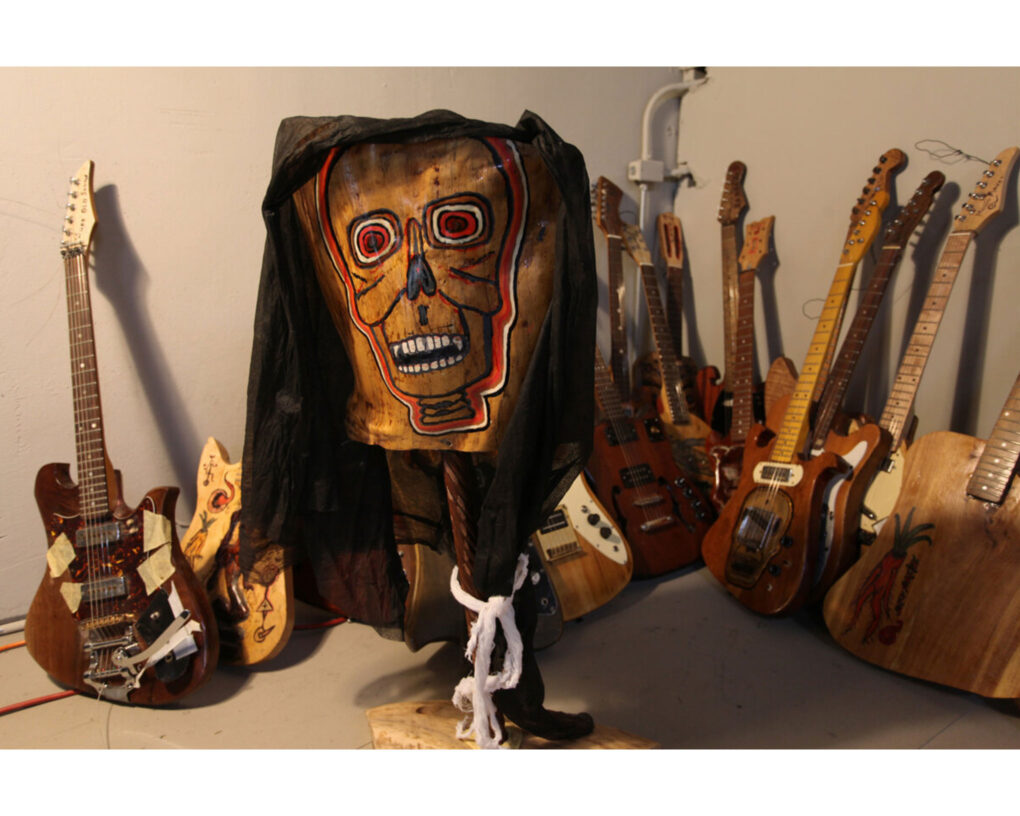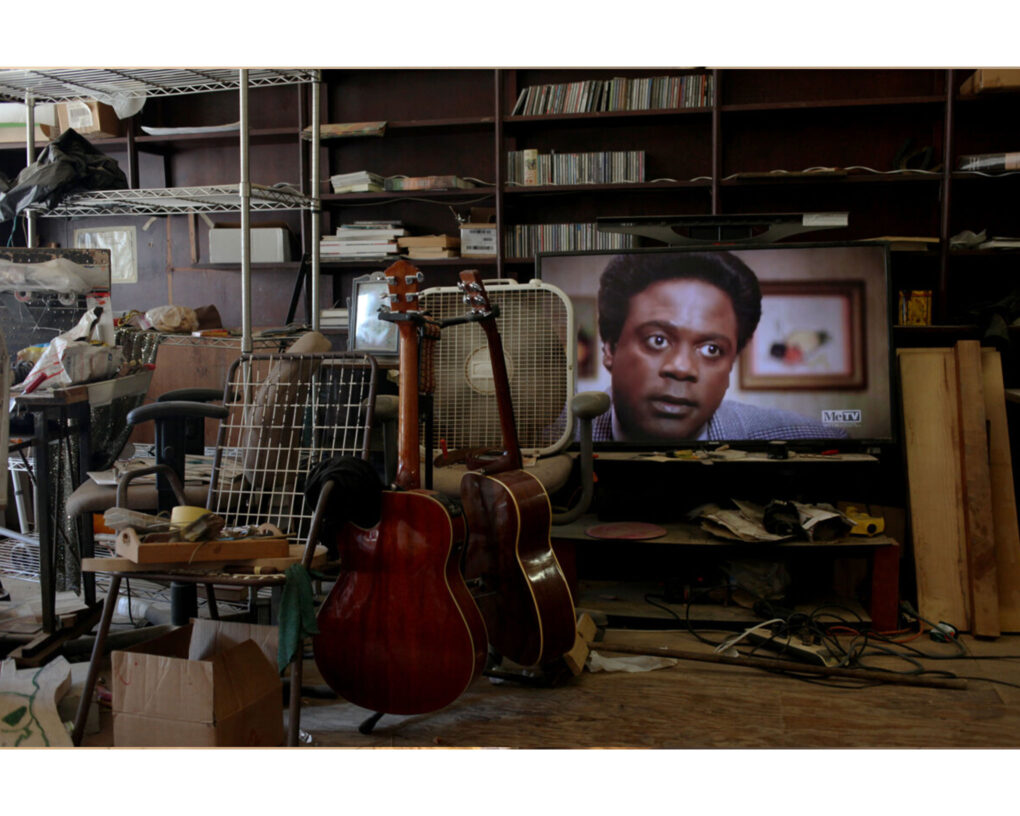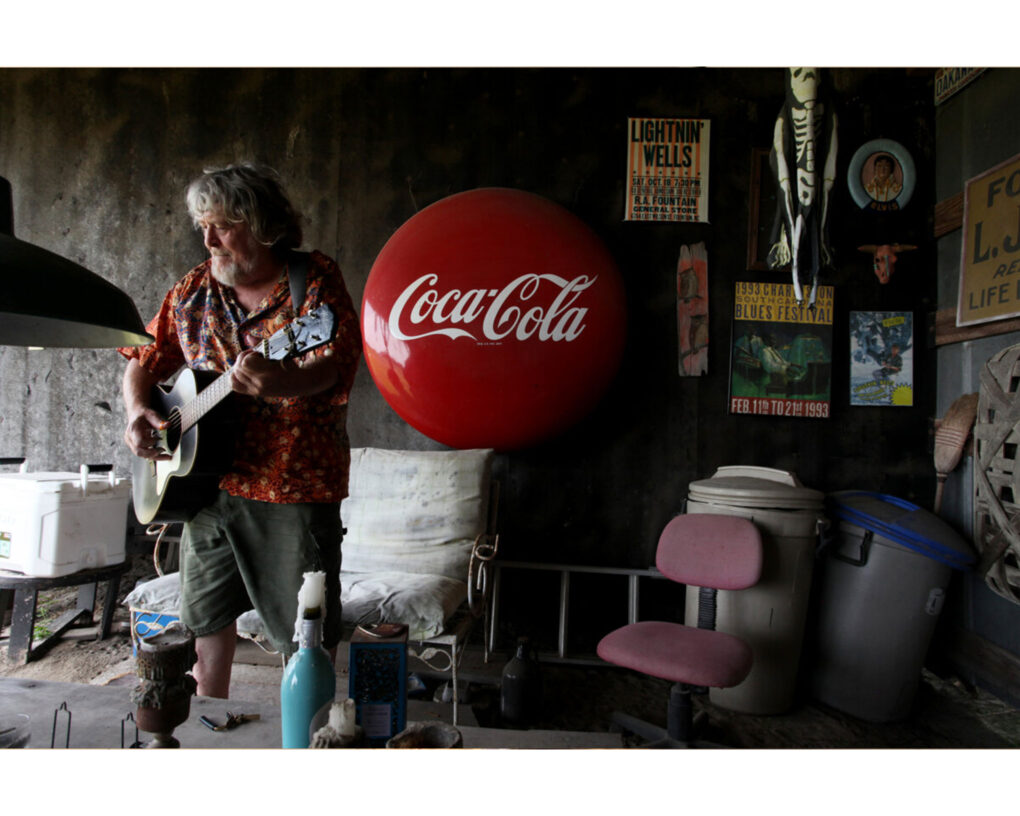Its Tobacco, Its Music

By Max Brzezinski
Back in August of 2023, a pair of French journalists, photographer Patrick Artinian and writer Louise Oligny, visited North Carolina (Caroline du Nord) for a piece on roots music and southern culture. They travelled widely around eastern Carolina, meeting many Music Maker friends and associates, and checking out the studio complex we’re building in Fountain. The team visited Freeman Vines, hung out with Bruce Watson of Bible & Tire Recording Co., and took in church services and tobacco fields. The result of the visit was a brilliant photo-essay in the French newspaper Mediapart entitled Wilson, Caroline du Nord: son tabac, sa musique (“Its Tobacco, Its Music”).
Now the French have a long, complicated history with African-American people and culture. In the jazz age and then after World War II, many black emigrants found more economic opportunity and personal freedom in Paris than in America. Black writers and musicians in particular tended to garner more acclaim and prestige in France than in their own home, and there was undeniable relief in escaping the strictures of Jim Crow and structural racism. At the same time, France was no post-racial utopia: it had its own global empire, and its own colonial nightmares in Algeria and Indochina. Inside of France, opportunities were still often differentially distributed by race, and prejudice still manifested itself in alternate forms of discrimination and fetishism than in the US.
Read in tandem with this complicated context, “Wilson, Caroline du Nord: son tabac, sa musique” is a breath of fresh air. It expresses a sincere appreciation of (mostly) black music and culture, its tortuous history and sublime sounds, and does so without nationalist distortion. In this, it provides an outsider’s view of a subject. It is not searching for the singular spirit of America, the way a US politician might. On the other hand, Oligny and Artinian avoid the racial sentimentalism you sometimes find in the French approach to African-American culture: even the more mystical art is always situated in its material conditions, in once-booming tobacco towns and against everyday financial hardships. Bravo!
Because the piece is (obviously) in a foreign language and paywalled, we’ve made a slideshow of some of the piece’s most interesting photographs, and translated a few of our favorite pieces of commentary below.
On Johnny Ray Daniels Leaving Behind Secular Music for Gospel:
Dieu lui a signifié qu’il n’était pas à la bonne place. Il a terminé la tournée et a quitté le groupe.
[God told him he wasn’t in a good place. He left the tour and quit the group.]
Bruce Watson on the Origin of Bible & Tire Record Co.:
« Bible & Tire, c’est parce que j’ai remarqué que, souvent, les églises étaient adossées à des magasins de pneus et je me suis dit que ça devait aller ensemble », déclare-t-il avec un brin de malice.
[“Bible & Tire, it’s because I’ve noticed that, often, churches were backed by tire stores and I said to myself that it had to go together,” he declares with a touch of mischief.]
On Freeman Vines’ Sculptural Style:
Certaines des guitares de Freeman Vines sont de véritables sculptures aux motifs mystiques : des serpents, des masques africains, des têtes de mort dont les orbites oculaires sont réalisées en écrasant des cigares sur le bois de l’instrument. Elles évoquent la magie, le vaudou, les esprits des morts.
[Some of Freeman Vines’ guitars are sculptures with mystic motifs: serpents, African masks, skulls whose eye sockets are made by crushing cigars on the wood of the instrument. They evoke magic, voodoo, the spirits of the dead.]
A Stolen Moment from Freeman Vines’ Daily Life:
Lorsqu’il a envie de voir du monde, il laisse la porte de son atelier ouverte. Au milieu de ses guitares, la télé, calée sur une chaîne de séries vintage, fonctionne en permanence.
[When he wants to see people, he leaves the door to his workshop open. In the middle of his guitars, the TV, tuned to a vintage series channel, is constantly playing.]
All translations by Tess Stogner
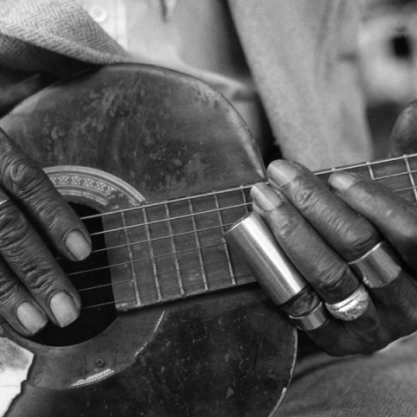
Get involved
& give back
The Music Maker Foundation is a 501(c)(3) nonprofit organization that depends on thousands of supporters. Together, we work to meet the day-to-day needs of the artists who create traditional American music, ensure their voices are heard, and give all people access to our nation’s hidden musical treasures. Please contribute or shop our store today.
